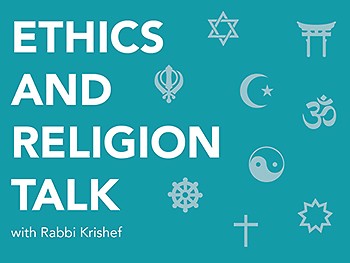This week, we present a second set of responses to a very important question raised by Lorri R.: “How should a person find healing if they were traumatized during early childhood religious experiences either by sexual abuse in the church, by overly strict practices, or by persistent shaming and humiliation?”
The Rev. Rachel J. Bahr, pastor of Plymouth UCC, responds:
“I hear this pain and the longing in your question. I’m heartbroken for all those who have suffered traumatic experiences within the church. The healing journey is so very personal. In my own recovery from trauma and the shame that came from being a PK in the Assemblies of God, I decided to do some internal work with a therapist. And then I took some years off from church entirely. When I was ready, I then took a pretty deep dive in various denominations as well as religions of all kinds. And then I went to seminary, and I went in search of theological language and tradition that I felt would affirm the goodness within each and every person. I found this in the UCC.”
The Reverend Colleen Squires, minister at All Souls Community Church of West Michigan, a Unitarian Universalist Congregation, responds:
“I call this ‘church hurt’ and I believe it is a very real problem. Every single Sunday someone new walks in our doors with some level of hurt or anger towards a religion. I believe the decline in going to church is a self-inflicted wound. All religions, including my own, need to address the pain we cause on the faithful. Truly accepting parishioners completely without judgement is a starting point.
“As for those who have been traumatized most have walked away from church or religion completely. While that may be helpful I wonder if that allows for healing. Some seek therapy and some find other outlets like running or being in nature. I think it is very important to work on really healing the hurt rather than ignoring it or denying it. When we really heal from trauma we gain our freedom from it. If you feel hurt from a religion I can tell you that you are not alone. May you find your path to healing.”
The Rev. Sandra Nikkel, head pastor of Conklin Reformed Church, responds:
“The first step in the process of healing is to recognize that it is not your fault. Then you need to realize that the abuse does not make you a ‘second class’ citizen. And finally, you need to believe that the best is yet to come. As a person who has been healed from childhood abuse and spousal abuse I can tell you that healing is possible but there are two things that stand in the way: fear and contentment with the existent state of affairs. It takes a lot of courage to survey the damage that has been done to you and the way it has affected your loved ones. Many would rather bury the memories and never talk about it; by doing this they ensure that their lives will be forever trapped in the paws of the abuser. The other thing that hinders healing is that we grow accustomed to living with the pain and it’s hard to envision something different. So, my advice to you is first, open up your heart and ask God to lead you into the steps of healing. Ask him to give you the courage to look at the way the abuse has affected you and the grace to envision a future free from trauma. Along with that, you should also seek the help of a professional therapist, a pastor, a spiritual director, or a spiritual companion who is willing to walk with you through the process of healing.”
My response:
I realize that there are plenty of people who experienced trauma at the hands of a person within a religious institution. I’m not sure, though, that I see that healing from that kind of trauma requires a different path than healing from other types of trauma. As my co-panelists have said, counseling from a trained therapist, support groups, taking care of oneself through physical exercise, and removing oneself from the source of pain, all can be part of the process of healing from any trauma. What is unique about religious trauma is that a primary source of healing, a supportive community, is the same as the primary source of trauma. So a person asking this question might want some kind of community with God at its center, but find that the community itself triggers echos of trauma from the abuse. The path of therapy, therefore, is to realize that just as not every sports doctor is an abuser and not every physical touch is abusive, so too not every religious community contains, supports, hides, or justifies abusers. And religious communities need to see that among their roles is to protect the victims of abuse by holding the abusers accountable.
This column answers questions of Ethics and Religion by submitting them to a multi-faith panel of spiritual leaders in the Grand Rapids area. We’d love to hear about the ordinary ethical questions that come up in the course of your day as well as any questions of religion that you’ve wondered about. Tell us how you resolved an ethical dilemma and see how members of the Ethics and Religion Talk panel would have handled the same situation. Please send your questions to [email protected].
The Rapidian, a program of the 501(c)3 nonprofit Community Media Center, relies on the community’s support to help cover the cost of training reporters and publishing content.
We need your help.
If each of our readers and content creators who values this community platform help support its creation and maintenance, The Rapidian can continue to educate and facilitate a conversation around issues for years to come.
Please support The Rapidian and make a contribution today.
